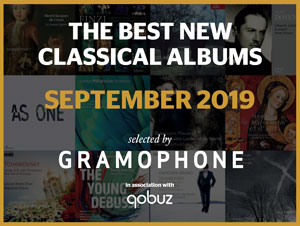'Women's Stories from the Ancient World': Mary Beard, Nardus Williams and Elizabeth Kenny | Live Review
Hattie Butterworth
Sunday, August 25, 2024
The classicist joins two musicians for an evening of exploration into ancient women's stories and their musical interpretations
⭐⭐⭐⭐
‘We’re not making a case for cancelling Handel or Purcell,’ classicist Mary Beard tells her audience. ‘Seeing these stories through the female perspective isn’t so we see women as heroines, it's to help us to deconstruct the story.’
It’s Mary Beard’s world that we’re living in. Writing on her Instagram, soprano Nardus Williams told her followers six weeks ago that she’d ‘plucked up the courage’ to ask Beard to put together this programme with her and lute player Elizabeth Kenny after meeting Beard last year. ‘To my surprise she said yes, and now we’re actually doing it.’
A first outing for this programme ‘"I never laid eyes on Aeneas …" Women’s Stories from the Ancient World’ at the Britten Studio at Snape Maltings in Suffolk, the trio are met by a sell-out audience. Put Mary Beard in your programme and expect to sell tickets.
But this was far from a cameo performance for Beard who, prepared as ever, astutely lead her audience and musician friends through stories of ancient women, composers and nuanced perspectives of women’s sexuality.
 Classicist Mary Beard | Photo:Angus Cooke © Britten Pears Arts
Classicist Mary Beard | Photo:Angus Cooke © Britten Pears Arts
We began with the music of John Blow, English composer and organist, who composed perhaps the first opera in English: Venus and Adonis. His song ‘Sappho to the goddess of love’ began the trio’s departure into the world of Greek poet Sappho and her explorations of female sexuality.
Williams, accompanied by Kenny on alternating theorbo and lute, brought an immediate resonance to the sound, transporting us to a Grecian, ancient landscape. Purcell’s setting of Sappho’s ‘Beneath a dark an melancholy grave’ exposed the intimacy and sensitivity present in the pair’s chamber music. Kenny on every word of Williams’s, though a technical master in her own right, maintaining an artistic balance throughout the evening.
We learn about composers Barbara Strozzi and Francesca Cuccini from perspectives of history and nuances of word setting. Beard shows us female heroins whose stories have been told in one way by a male composer, and in another way by a woman. She gives us the possibility that women composers had more to say about the reality of these women’s desire and subversion.
Beard has often been known for her unapologetic descriptions of ancient sexual life and this concert was no exception. ‘The purple promise of ripeness’ is translated for us in Cuccini’s ‘Dispiegate guancie amate’ on Beard’s powerpoint presentation, along with all other songs not in English. It’s an intimate way of replacing the programme text and surtitles and felt undeniably ‘Mary Beard’, inviting us into her lecture hall with a low production value presentation complete with Calibri font.
The concert’s second half took us to perhaps the evening’s high point in Purcell’s ‘Dido’s Lament’ from his opera Dido and Aeneas. Williams showed meticulous control over her upper register which gleamed with desperation in ‘remember me’ and begged through her gloriously improvisatory second verse.

 Lute player Elizabeth Kenny, soprano Nardus Williams and Mary Beard | Photo:Angus Cooke © Britten Pears Arts
Lute player Elizabeth Kenny, soprano Nardus Williams and Mary Beard | Photo:Angus Cooke © Britten Pears Arts
‘Dido is the sacrificial victim of Rome’, Beard tells us. Purcell’s Lament is well known and loved, though, as Williams explains in her highly eruditus programme notes, the female lament became one of the central pillars to vocal music in the 17th century. She and Kenny introduced us to other laments by Strozzi in ‘Mi far rider’ and Caccini with ‘Dov’lo credea le mie speranze’. These weren't a patch on Purcell or Monteverdi’s best-known offerings, with Williams sometimes struggled to sustain the desperate endings and colours of notes.
The mood transformed with Purcell’s ‘Nymphs and Shepherds’ and his brother Daniel Purcell’s ‘When Daphne first her Shepherd Saw’. Masterfully navigated, these faster-paced, more light-hearted pieces suited Williams’s agile voice with the Kenny/Williams synergy at its finest.
As the myth of the adulterous Semele drew the concert to a close, we were asked again by Beard to consider the female perspective of her story. Composer Elisabeth Jacquette de la Guerre’s setting of the story points the blame at Jupiter in ‘Jupiter avait fait’. But we of course end with ‘Endless Pleasure’ from Handel’s oratorio Semele beautifully arranged in a virtuosic reading for theorbo and voice by Kenny.
‘We remain conflicted about how to judge her,’ Beard says of Semele, after giving various readings of her situation in love.
It’s a new, wide perspective of opera and history's women and one for which Beard, Williams and Kenny bring inclusivity, vibrancy, passion and humour.






